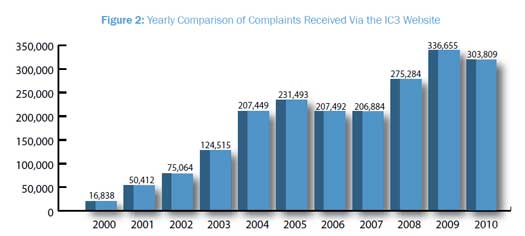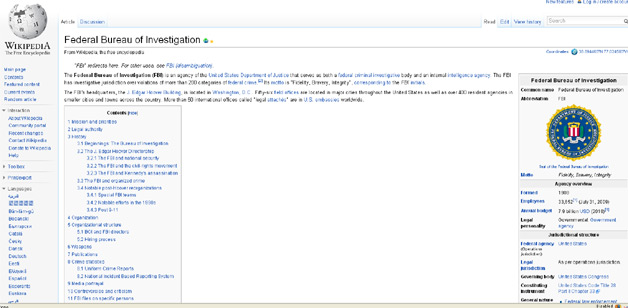The FBI is shopping around for a contractor to do some snooping for them on social media websites like Facebook and Twitter.
In a document called “Social Media Application” (pdf) released on January 19, it was revealed that the Strategic Information and Operations Center (SIOC) at the FBI is looking for a company to provide software that can analyze any publicly available information, including tweets, Facebook statuses, notes, etc. and flag anything that the FBI wants to know about.
The plan is to use this information along with a mapping software to locate threats.
From the white paper:
This must be a secure, light weight web application portal, using mash-up technology. The application must have the ability to rapidly assemble critical open source information and intelligence that will allow SIOC to quickly vet, identify, and geo-locate breaking events, incidents and emerging threats. The product must have the capacity to allow the user to retain control of cached and real-time proprietary data; the ability to share it with selected partners, and ultimately enhancing coordination, synchronized-awareness and synergy at the operational level.
Notice the specific mention of “cached and real-time” data. This would enable them to build a database of information to trace patterns and compile profiles.
Among the things the FBI wishes to monitor closely are news organizations (Fox News, CNN and MSNBC were specifically mentioned), Facebook, and Twitter. They specified that they wish to keep tabs on:
1) US Domestic Terror Data
2) Worldwide Terror Data
3) US Embassies, Consulates and Military Installations
4) Weather Conditions and Forecasts
5) Traffic Video
That last item was particularly interesting because they expanded on it.
Traffic Video- Ability to display video feeds fiom traffic cameras to
monitor traffic patterns, obstructions, bottle necks, protesters, and flash
mobs.
The FBI wants to be able to have video feeds of protesters and to monitor flash mobs. With facial recognition software, license plate readers, plenty of public monitoring cameras, and a large cache of information waiting to be mined, this is a conspiracy theorists dream/nightmare come true.








 “It’s impossible for the FBI to look for every piece of stolen art in the country,” said Bonnie Magness-Gardiner, who manages the
“It’s impossible for the FBI to look for every piece of stolen art in the country,” said Bonnie Magness-Gardiner, who manages the 

 The Mariposa Botnet was built with a computer virus known as "Butterfly Bot" and was used to steal passwords for websites and financial institutions. It stole computer users’ credit card and bank account information, launched denial of service attacks, and spread viruses. Industry experts estimated the Mariposa Botnet may have infected as many as 8 million to 12 million computers.
The Mariposa Botnet was built with a computer virus known as "Butterfly Bot" and was used to steal passwords for websites and financial institutions. It stole computer users’ credit card and bank account information, launched denial of service attacks, and spread viruses. Industry experts estimated the Mariposa Botnet may have infected as many as 8 million to 12 million computers. The
The 

 In January, Digati sought the return of his
In January, Digati sought the return of his  "The Department of Justice takes threats against government officials seriously, especially threats to kill or injure others," said United States Attorney
"The Department of Justice takes threats against government officials seriously, especially threats to kill or injure others," said United States Attorney  Delorey, through his website sold two hacked modems to an undercover
Delorey, through his website sold two hacked modems to an undercover